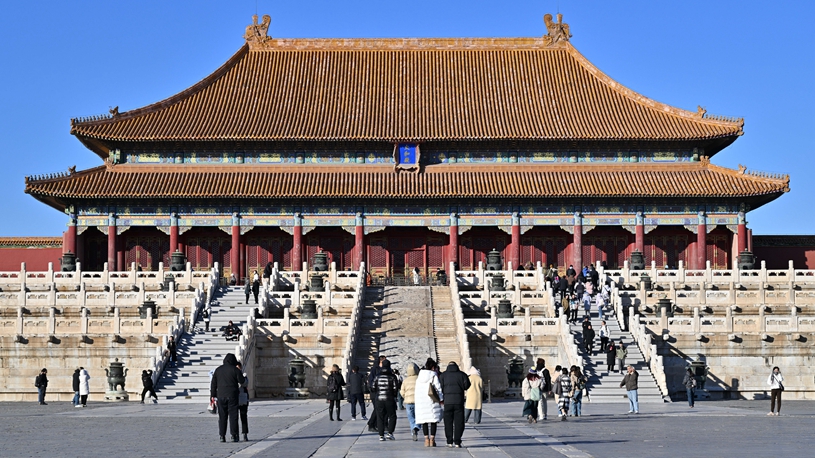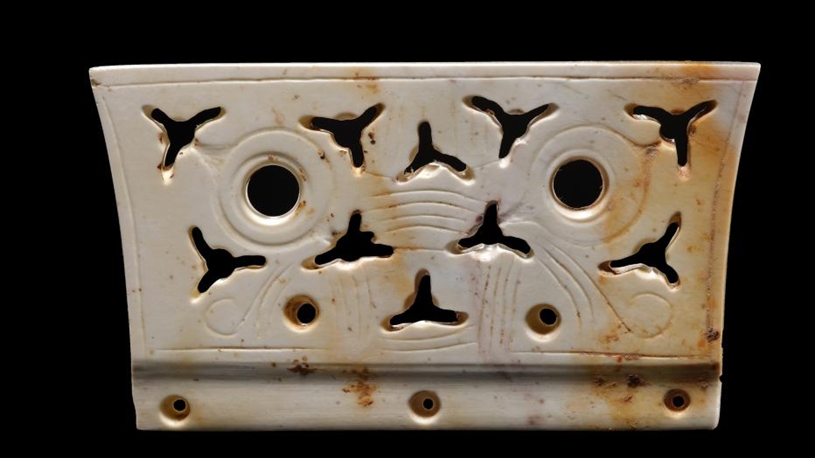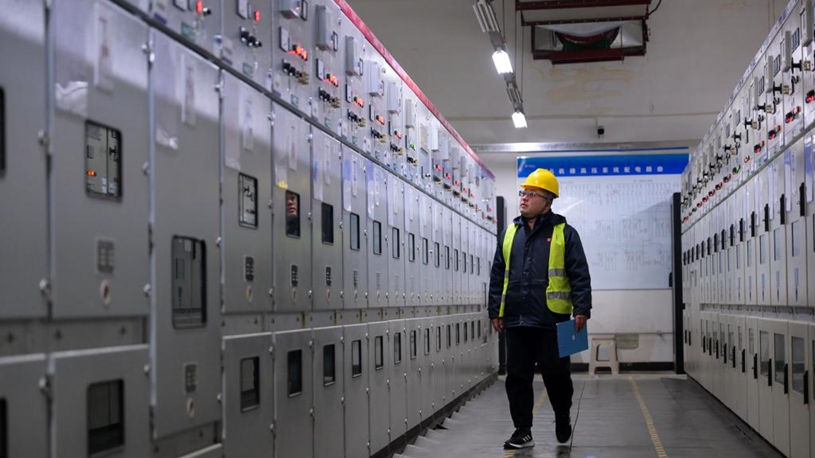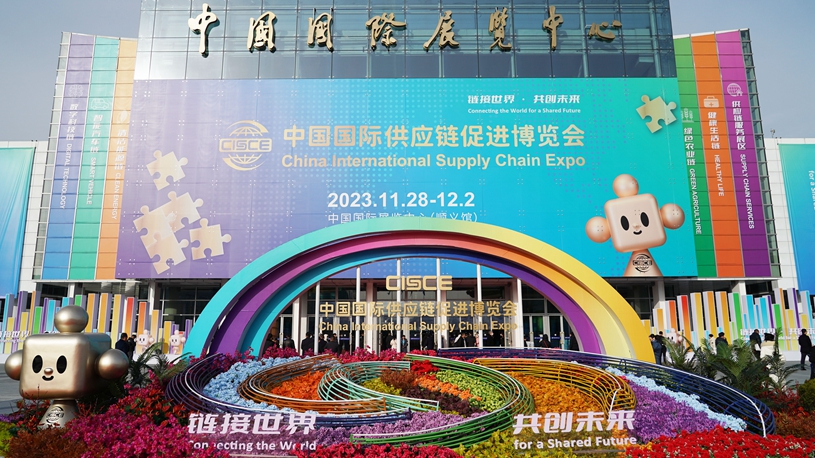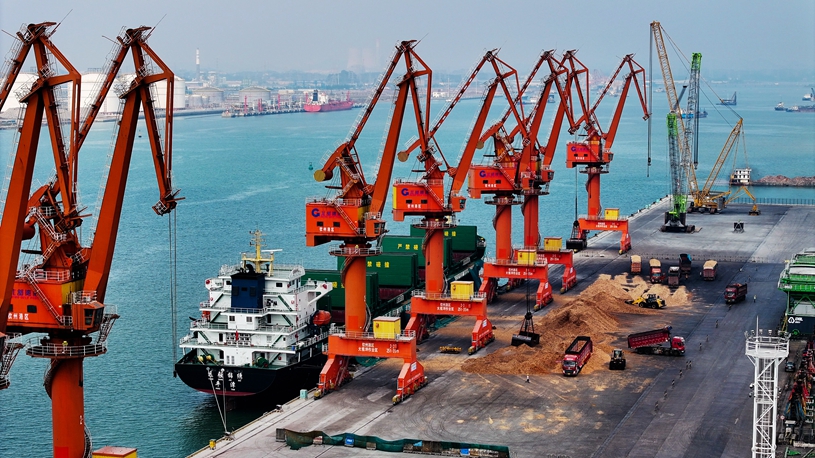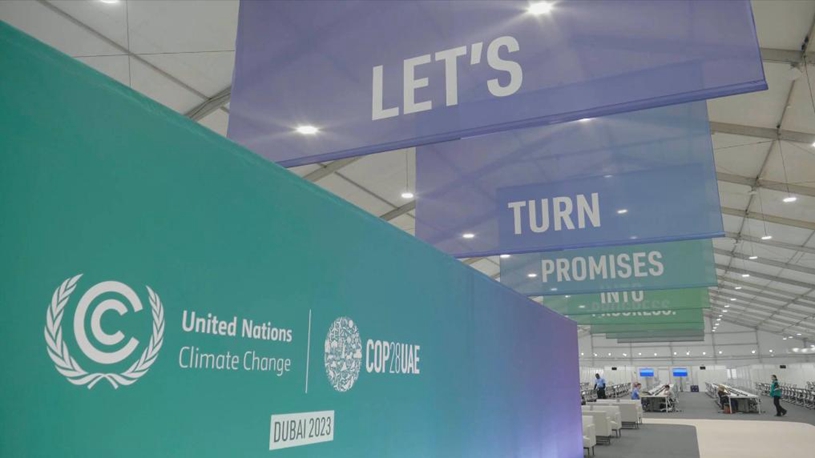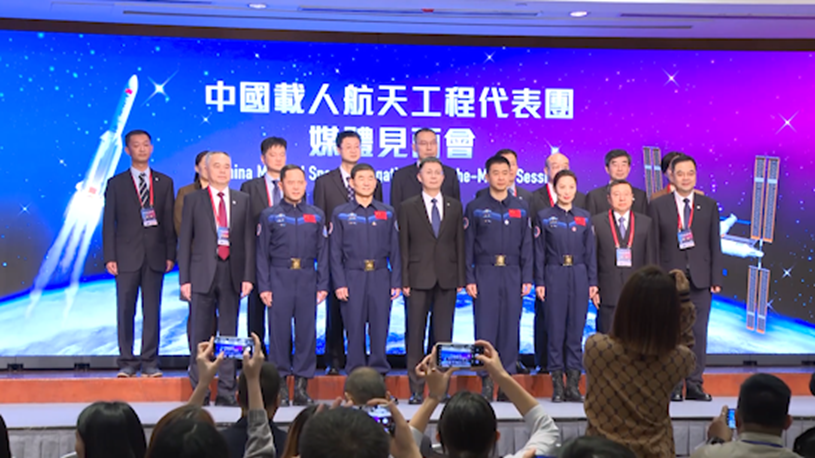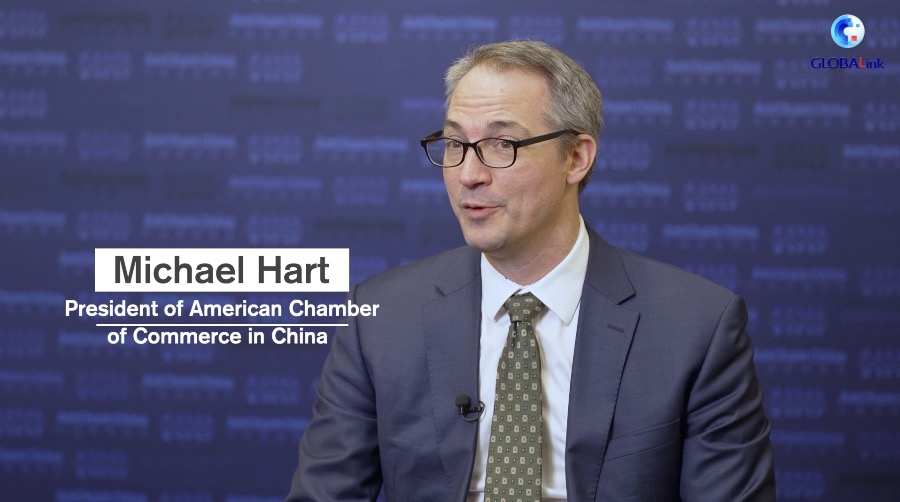
President of Xinhua News Agency Fu Hua, Reuters Head of Agency Sue Brooks, Vice President of the Associated Press (AP) YK Chan, and Michael Mainville, member of the Agence France-Presse (AFP) Executive Committee and AFP Asia-Pacific regional director, meet in Beijing to discuss cooperation to tackle pressing challenges facing media in times of change, Dec. 1, 2023. (Xinhua/Huang Jingwen)
BEIJING, Dec. 2 (Xinhua) -- Leaders of four major international wire services whose news products reach three-fourths of the global population met on Friday to discuss cooperation to tackle pressing challenges facing media in times of change.
The meeting among leaders of Xinhua News Agency, Reuters, The Associated Press (AP), and Agence France-Presse (AFP) was the first of its kind. Fu Hua, president of Xinhua, hosted the event in downtown Beijing.
"The global media industry is undergoing a significant transformation," Fu said, citing factors such as technological innovation that is reshaping the industry, and the spread of fake news that is challenging journalistic ethics.
He proposed establishing a high-level dialogue and cooperation mechanism of the four within the framework of the World Media Summit (WMS).
"By engaging in such dialogues, we can inspire one another and promote mutual development," Fu said.
Reuters Head of Agency Sue Brooks said the content produced by the four reaches around 75 percent of the global population.
"Therefore, it is very important that the information we gather and the journalism that we produce tells the world the truth and is trusted by them," she said.
The executives agreed that international news agencies should work together and stay committed to providing users with objective, fair and accurate information.
"We view collaboration with fellow news agencies as paramount," said AP Vice President YK Chan.
"Collaboration allows us to tell important stories, keep our journalists safe and address more pressing challenges facing our industry," he said.
The topics discussed at Friday's meeting ranged from coping with the emergence of new technologies such as artificial intelligence (AI) and combating fake news, to improving ways to better protect journalists covering wars and natural disasters.

President of Xinhua News Agency Fu Hua, Reuters Head of Agency Sue Brooks, Vice President of the Associated Press (AP) YK Chan, and Michael Mainville, member of the Agence France-Presse (AFP) Executive Committee and AFP Asia-Pacific regional director, meet in Beijing to discuss cooperation to tackle pressing challenges facing media in times of change, Dec. 1, 2023. (Xinhua/Huang Jingwen)
Fu suggested mutual humanitarian assistance during news reporting in conflict zones, natural disasters and other dangerous areas, and proposed building on existing text and photo service cooperation to expand collaboration, particularly in video content commercial distribution.
On meeting the challenges brought by technological advancement, media leaders concurred that while the application of the technologies can aid in news collection and dissemination, it should not replace the media industry itself, nor should it compromise news ethics and authenticity.
Michael Mainville, member of the AFP Executive Committee and AFP Asia-Pacific regional director, said while AI can help media outlets boost productivity, "we believe it is also very important to discuss the principles of how we will use artificial intelligence."
Fu suggested that the four global wire services deepen exchanges and communication while conducting operational training in international media development trends, cutting-edge media technology applications, and combating fake news through information verification.
He said that in recent years, Xinhua, Reuters, the AP and AFP have proactively adapted, innovated, and utilized technological achievements, standing at the forefront of media transformation.
Friday's meeting took place before the fifth WMS to be held in the cities of Guangzhou and Kunming.
Themed "Boosting global confidence, promoting media development," the fifth WMS, which runs from Dec. 2 to 8, gathers over 450 participants from 101 countries and regions, including representatives of 197 mainstream media outlets, think tanks, government agencies, diplomatic missions to China, as well as UN agencies and international organizations. ■

